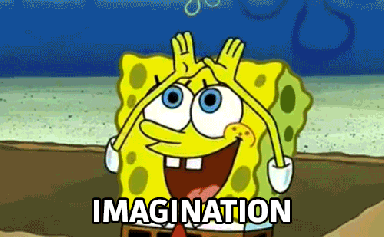Work is the natural, creative and transforming activity of the human being and the only source of social and human wealth. The present and the future of man and woman have at work the fundamental support for the survival of their material and spiritual life.
The types of work are divided into two general groups:
- According to the level of instruction required. These types of work can be:
- Unskilled work. It is not necessary for the worker to have some level of instruction or previous experience because they have to perform simple and routine tasks. For example: a moving worker to help load and unload packages.
- Low-skilled job. It is necessary for the worker to have basic knowledge regarding the task to be carried out, but it does not necessarily require some level of instruction or previous experience. For example: a cleaning employee.
- Semi-skilled work. It is necessary for the worker to have knowledge about operating machinery or a particular task, although they may not have acquired a basic level of education or previous work experience. For example: a specialized field pawn.
- Qualified work. It is necessary that the worker has a secondary level of instruction and has knowledge in the task to be carried out. For example: an assistant.
- I work with upper secondary education. It is necessary for the worker to have a tertiary or university level of instruction, so that they have the knowledge and the level of responsibility required for the tasks to be performed. For example: a professor or a public accountant.
- I work with scientific improvement. It is essential that the worker has undergraduate studies and, in addition, specialization and experience in the task to be performed, in order to meet the level of demand, responsibility and ethical performance that the position requires. For example: a surgeon.
- According to the type of contract. These types of work can be:
- Work in a dependency or salaried relationship. It is a modality in which the employer hires a worker in a formal way, through a contract in which the working conditions, salary and other conditions and benefits are determined, such as paid vacations. The employee must meet these conditions and, in return, receives a fixed salary from the employer.
- State contracting. It is a modality in which the State hires a worker, but the type of contract varies greatly depending on the type of position to be covered. It can be through a temporary contract without enjoying certain benefits, professional fees for certain tasks performed or an indefinite contract.
- Self-employment or registered self-employment. It is a modality in which the worker does not depend on an employer or company, but works for himself, contributes his own capital and directs his activity. The worker must register in the special regime that governs in his country for independent employees and, in this way, his work is legal, has the support of contributions and social charges and must pay taxes according to the heading of his activity. For example: an entrepreneur who sells the furniture that the same factory or a professional financial advisor.
- Unregistered work. It is a modality also known as informal work that is characterized because the relationship between the employee and the employer is not established from the legal formality, so they do not meet several requirements stipulated in the dependency relationship.
- Informal work. It is an irregular and inconsistent mode of work, in which the worker performs the tasks that he can in order to receive a salary to be able to survive.
Why is it important to work?
Work is so important that it is the basic and fundamental condition
of human life, it is the source of the goods and services that satisfy our
needs. In addition, the Work produces artistic and scientific works. It is the
Work that has made it possible to create entire civilizations. Because decent
work improves societies and makes them more inclusive, equitable and
sustainable.
What has been the bad thing about the job?
Working has also been the means for some human beings to
exploit others and thus a few concentrate enormous wealth, while millions of
workers do not have the essentials to have a decent life. For this reason, the
struggle of the Labor Party is so that work ceases to be an exploited and
alienating activity and becomes a realizing activity of the human being. The
objective is to achieve a just, equitable and democratic society based on
emancipated work, that is, that work benefits those who do it.
What job do I like and why?
Graphic designer is very interesting. This profession opens the doors to creative expression, you can capture different ideas, messages and emotions through the image, you can simply be creative. It also gives you the possibility of managing your squeduels according to your needs, as well as allowing you to work on a wide variety of projects, as long as you can meet the dates on time.
Which job is more dangerous and why?
In my opinion, the most dangerous or hard job is being a
miner because, to begin with, cave-ins that can occur while working can cause
serious inyury and even death. Some work in an environment without natural
light or ventilation, workers affected by diseibling occupational diseases such
as pneumoconiosis, hearing loss and the effects of vibrations.
AN APPLICATION TO LIFE
The most important thing would be to get money and that will serve later. It may be difficult to achieve it but with effort and desire we will see the results of our work. Getting your own money can be satisfying as it will serve to pay bills it will also serve to please you.





No hay comentarios.:
Publicar un comentario